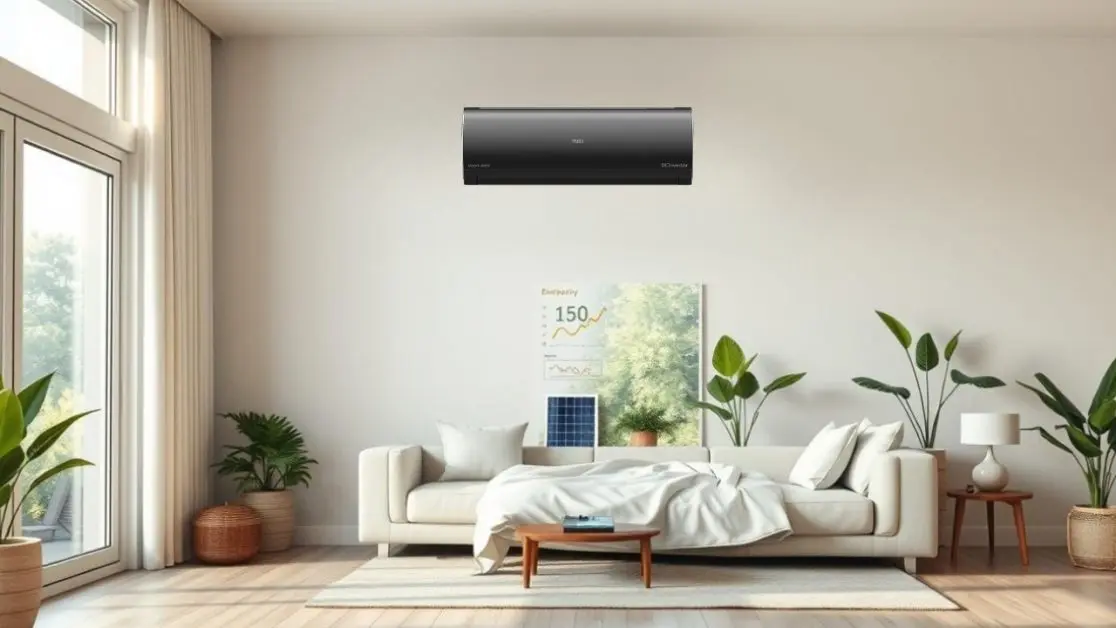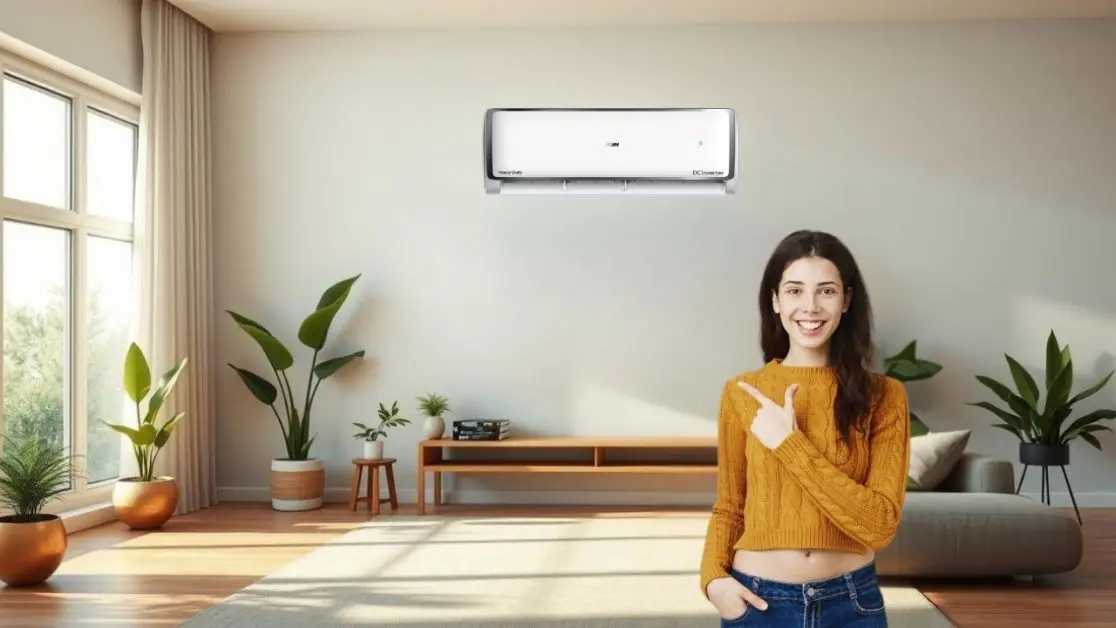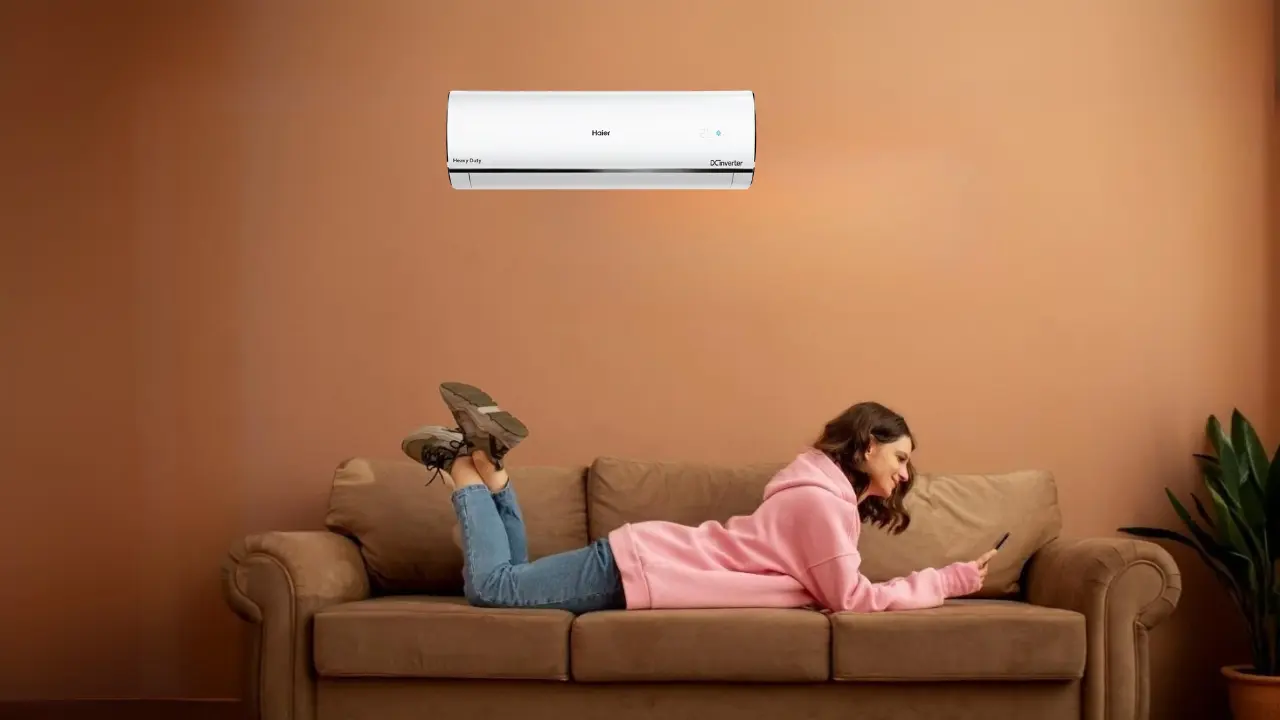As the world embraces sustainable solutions, renewable energy-powered air conditioning systems are becoming more common.
However, they face challenges like fluctuating energy supply, varying cooling demands, and cost management. This is where artificial intelligence (AI) steps in to revolutionize the industry.
AI-powered systems can analyze energy patterns, predict cooling needs, and automatically adjust operations to maximize efficiency. By leveraging machine learning and real-time data, AI ensures optimal energy use, reducing waste and improving reliability.
Beyond efficiency, AI enhances the sustainability of renewable AC systems by integrating weather forecasting, smart grid management, and adaptive cooling techniques. This means users get the best cooling performance with minimal environmental impact.
With AI, air conditioners become smarter, learning from usage patterns and optimizing energy distribution in real-time.
In this article, we’ll explore how AI-driven automation is transforming renewable AC systems, improving efficiency, and making sustainable cooling a practical reality for the future.
The Role of AI in Renewable Energy-Powered AC Systems

1. Smart Energy Management
Like all other highly advanced and multi-functional systems, AI integrates a Smart Energy Management (SEM) system that ensures the most efficient functionality of a renewable energy-powered AC system. These SEM systems optimize energy use by considering factors such as user preferences, weather, time, and available energy storage.
For example, cooling peaks can be anticipated based on prior temperature readings, allowing AI to control the AC’s energy use. AI has further reduced spending by synchronizing the operation of an AC unit with renewable energy availability. This results in lower energy costs in buildings while maintaining optimal comfort levels.
2. Predictive Maintenance
Unattended downtime has the potential to waste energy and result in costly AC system repairs. Predictive maintenance powered by AI detects system anomalies with real-time sensors before they escalate into actual problems.
Compressor vibrations, refrigerant pressure, and airflow efficiency are just a few of the parameters monitored by Machine Learning (ML) models to flag maintenance issues. Maintenance teams stay ahead of sudden system failures, thereby extending the lifespan of both the AC units and the buildings they service.
3. AI Smart Prediction for Better Energy Consumption
One of the greatest challenges in renewable energy-sustained AC systems is fluctuating energy demand. AI-powered demand prediction is a breakthrough for each cooling plant, as it factors in occupancy behavior, climatic conditions, and historical data.
With the help of AI-powered predictive analytics, AC systems can adjust operations according to energy supply and demand. For example, AI can increase cooling output during peak energy generation periods to store energy for later use. Conversely, during periods of low renewable energy availability, AI can optimize cooling operations to maintain efficiency while still providing comfort.
4. Smart Load Balancing and Its Benefits for Grid Control
Grid stability is a challenge when connecting renewable energy sources with AC systems due to the sporadic nature of power generation. By integrating AI, intelligent load balancing can be implemented, distributing energy usage among different AC units within a building or across multiple locations.
For instance, AI-powered smart HVAC systems can shift cooling loads to periods when solar or wind generation is at its peak. Additionally, microgrid control systems ensure that renewable energy is always prioritized while maintaining grid stability.
5. Smart Homes and IoT Integration for Improved Functionality
AI extends the integration of smart AC devices to smart ecosystems and IoT devices, enhancing energy-saving cooling experiences.
AI-powered AC units can connect with smart thermostats, occupancy sensors, and energy storage devices to cool rooms in real time. Additionally, AI can switch AC units to energy-saving mode when rooms are unoccupied. Voice assistants further enable users to adjust temperature settings effortlessly, enhancing energy conservation.
6. AI-Optimized Energy Storage
Renewable energy AC systems rely on batteries for energy storage to ensure smooth operation. AI enhances energy efficiency by analyzing demand trends and optimizing battery charge and discharge cycles.
For instance, AI can schedule battery charging and discharging based on energy prices, weather forecasts, and user preferences. This ensures optimal energy storage system performance, reducing reliance on fossil fuels and making AC systems more sustainable.
7. Personalized Comfort with AI-Powered Adaptive Cooling
Standard AC units operate based on static temperature presets, often leading to unnecessary energy consumption. AI-powered adaptive cooling dynamically adjusts cooling settings based on user preferences, weather conditions, and occupancy patterns.
For example, AI-driven AC units process real-time user and environmental data to create personalized cooling routines. If a user prefers a specific temperature at certain hours, AI ensures these settings are automatically applied, providing both comfort and energy efficiency.
AI-Enhanced AC Units and Their Importance in Renewable Energy Efficiency

AI-powered AC units play a crucial role in maximizing the efficient use of renewable energy. These systems utilize AI-powered analytics to dynamically adjust cooling loads based on renewable energy availability. This allows AC units to operate at optimal times while reducing energy usage during periods of minimal renewable energy generation.
Additionally, AI enables AC units to integrate with local energy distribution networks and participate in demand response programs. AI-powered ACs respond to grid stability and renewable energy availability by adjusting consumption patterns, reducing peak loads, and increasing overall energy sustainability.
The Future of AI in Renewable Energy-Powered AC Systems
The reliance on AI in renewable energy-powered AC systems is expected to increase with advancements in edge computing, real-time analytics, and deep learning models. Some anticipated developments include:
- Fully autonomous climate control systems that adjust instantly based on environmental conditions.
- AI algorithms integrated with blockchain technology for energy trading and optimized cooling system operations.
- Neural network algorithms that enhance demand forecasting accuracy.
The future of intelligent cooling technology, combined with renewable energy sources, will offer eco-friendly and highly efficient climate control solutions as AI continues to evolve.
At the end!
AI is transforming renewable energy-powered AC systems by enhancing effectiveness, improving energy efficiency, and enabling smart functionalities.
Adaptive cooling strategies, predictive maintenance, strategic energy storage, and intelligent load balancing in appliances are just a few of the AI-driven processes that contribute to sustainability and environmental preservation.
Moving forward, AI-driven cooling systems will further support eco-friendly climate control solutions, making the world greener and more energy-efficient.
Smart home appliances offered by Haier provide private users and businesses with modern AI-assisted cooling technology featuring intelligent control, seamless energy management, and superior cooling efficiency, ensuring a sustainable and cost-effective cooling experience.

